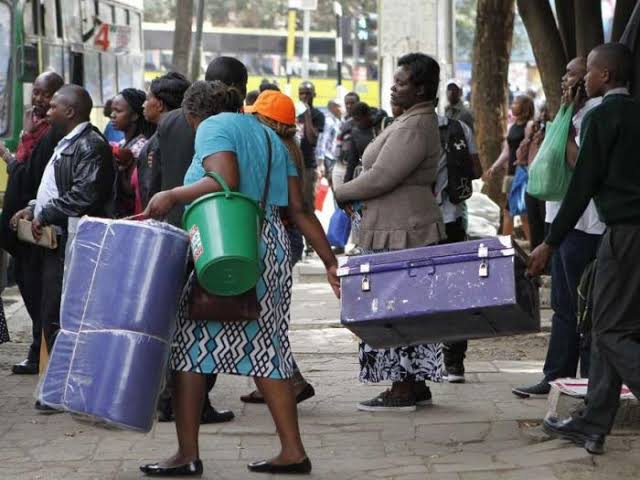NAIROBI, Kenya, Apr, 23 – 1,225,693 candidates that sat the 2021 Kenya Certificate of Primary Education (KCPE) examination are expected to join secondary school in May, 3,2022.
Basic education Principal Secretary Dr. Julius Jwan during the release of the 2021 Kenya Certificate of Secondary Education (KCSE) examination said that secondary schools nationwide are ready to receive the students.
All the candidates that sat the exams secured positions in secondary schools across the country.
And in line with the government’s 100 per cent transition policy, no child will be denied access to secondary school education.
“The opening of schools remains as scheduled next week,” said Jwan.
Jwan has meanwhile urged school principals to be ‘gentle’ on parents and not to deny their children access to schools over school fees.
“I want to plead with principals, especially in our secondary school…the government has already remitted money for capitation to schools…Sh16billion for secondary and Sh2 billion or primary…Principals of boarding schools to treat parents gently, there are parents who may come with less money, there are those who may not have enough, please let the learners get into school because we are going to have a fairly short year so that the learners do not waste time at home,” he said.
Alternatively, principals and parents have been urged to come up with a payment schedule indicating when they will pay any arrears for students in boarding schools.
“Although the year has been shortened it is within what is prescribed by KICD….from next term, let schools engage in the normal co-curricular activities so that we do not say the year is very short, everybody must stay in class and learn all the time,” said Jwan.
Education officials have meanwhile been urged to ensure all learners report to school in line with the government’s 100 per cent transition play to secondary school.
“In the next few days, the teachers will be welcoming our 2021 KCPE Examination candidates to Form One. We once again urge the teachers to tighten up their belts as they admit the 1.2 million learners to their schools. It is our determination as a Commission to ensure that the 100 per cent transition policy succeeds to guarantee all children their basic right to education,“ said TSC CEO Nancy Macharia.
Education CS Prof. George Magoha meanwhile said that the government has made deliberate efforts to make education not only accessible but also affordable.
“This has been demonstrated by raising of capitation for Free Day Secondary Education (FDSE) from Sh12,870 to the current Sh22,244. This has ensured that thousands of learners, many from humble backgrounds, have attended and completed their secondary education without having to pay for any other costs,” he said.
Since 2013, the capitation to public secondary school learners amounts to a total of Sh325.67 billion to 23,832,734 learners in public secondary schools and a total of Sh1.52 billion to 34,194 special needs education (SNE) learners in 768 public secondary schools.
Form 1 Placement Controversy
Amidst the progressive and good news that all candidates will join secondary school, scores of learners are said to have missed out on being placed in their school of choice. Education Cabinet Secretary Professor George Magoha cited ‘a lack of guidance’ for candidates from teachers and parents alike.
According to Magoha, some schools reportedly attracted far too many applicants against their current capacities.
“During the selection, as was the case last year, it became clear to us that a big number of candidates did not receive proper guidance and direction when choosing schools,” he said during the placement exercise.
Though it has long been a ministry policy to attempt to place candidates in their school of choice, this time, despite observing the strictly applied principles of merit, choice, and equity in placing candidates in each school category, the exercise proved slightly difficult.
In the placement, the majority of candidates who scored 400 marks and above were however still placed in National or Extra County schools of their choice.
The Special Needs candidates were also placed in the regular schools of their preference, while others were placed in special schools based on their disability categories, on merit, and choice.
“In this year’s selection, just like last year, we have applied the affirmative action provision by opening opportunities for a number of children from slums. The candidates were placed first, thus guaranteeing them their first choices in national schools. Through this, we managed to place 567 learners in their first-choice national schools. The further intervention was done by giving an additional 314 places in National and Extra County schools,”
The slums identified under this arrangement were from Thika, Nyeri, Kisumu, Nairobi, Mombasa, Nakuru, and Eldoret urban centers.
Want to send us a story? Contact Shahidi News Tel: +254115512797 (Mobile & WhatsApp)


